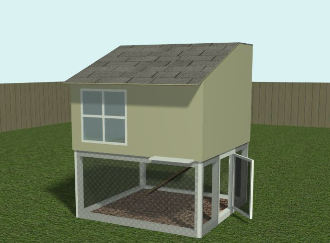There are different varieties of poultry eggs. The most common reared are chicken, ducks, quails, gooses and ostriches. Eggs produced by the above mentioned birds vary in size, taste and color. They are commonly used for food especially because of their high protein value. This article explains how one can rear chicken. Chicken eggs are the most popular and readily available in the market. Rearing hens for eggs is also easy and cheap.
Chicken maturity period is approximately five months. It takes twenty to twenty two weeks for a chicken to start rearing from the day of hatching. One can either buy five months old pullets or baby chicks. Chicks are prone to diseases and require intensive care. After hatching they should be kept in well lit and ventilated room.
Starter feed is rich with proteins and is recommended for young chicks. The pullets should not be mixed with adults. It is also important to de-beak them early to prevent them from pecking each other. The most valued breed includes Leghorns, Rhode Island reds, barred rock and Hampshires. Leghorns lay white eggs while the others lay brown ones.
Feeding and disease control in chicken. Adults hens should be given layers mash which has a lower nutrients density. The feeds should be enough to ensure that there is continuous production. The feeds should also not be given in excess to prevent wastage. The feeding trough should be cleaned every day to prevent feeds going stale. Feeds should be accompanied with plenty of clean drinking water. Vaccination should be carried out against diseases such as Newcastle disease, bronchitis and fowl pox. There are two ways of vaccinating which are, injecting or can be put in drinking water.
Chickens require proper housing methods so at to stay healthy. Their pens should always be clean. Clean rooms help keep diseases away. When constructing a chicken pen one should leave enough space to allow cleaning. It is advisable to lift the structure one meter above the ground to keep away predators and pests. Ventilation should be well done to ensure adequate flow of fresh air. Chicken require light either from the sun or an artificial source.
Good management keeps the flock healthy. Chicken requires keen attention to ensure that they all doing well. The sick ones should always be separated from the rest to prevent spread of disease. New bought hens should not be mixed with the rest of the flock.
Eggs should be collected from the nests regularly to prevent congestion which may cause breakages. Keeping records is vital key for knowing the performance of the flock. Production may sometimes vary due to factors like bad weather, cold seasons, inadequate feeds and infections. Normally, the production reduces as the layers age.
In conclusion, poultry eggs are common source of food rich in proteins. Chicken maturity period is about five months. Chicks can easily die if there are not well taken care of. Well feeding and prevention of the above mentioned diseases keeps the flock healthy. A good housing should be clean and well ventilated. Finally, rearing chicken requires good management.



Leave a Reply